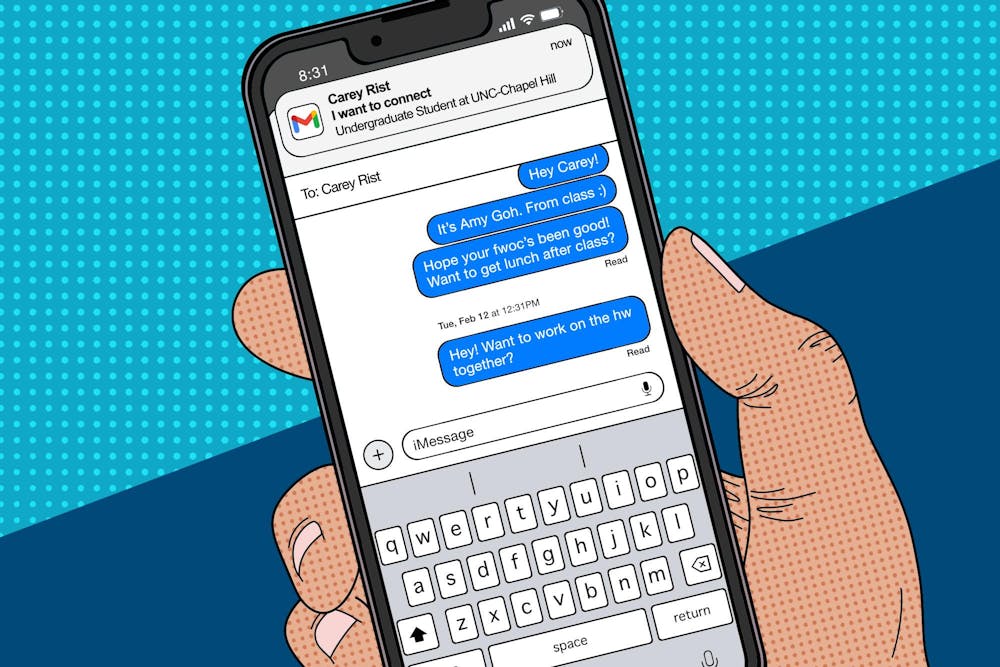According to most historians, it’s been centuries since most humans operated on trade via bartering. I disagree. Clearly, social scientists who assert this have never been to UNC.
Though the student body does not physically trade day-to-day with lumber or blacksmith services, it seems like there’s always leverage about who’s giving and receiving what, and who has the upper hand.
We arrive on campus and are trained to have 24/7 mental scoreboards. Are you the king of the court with a teaching assistant position, a grant to do research abroad in the summer or a recent admission to the Gillings School of Global Public Health?
Every first day of class, it seems like a race to see who can out-network their peers to have the most special relationship with the professor so that eventually, when a corporate job is at one’s fingertips, the false persona this student presented to that professor will have paid off in the form of a three paragraph reference.
I, in a very Gen Z way, hate it here. Not really, but I hate this system we created and fueled.
College relationships shouldn’t be solely used for professional advancement.
The wording of that almost sounds incorrect in a way, because college is the age of exploration, which can naturally leads to the bettering of one's position or career. But the kind of advancement our campus concentrates on is not a real mode of genuine growth and enhancement, it’s a selfish way to use someone for your own gain.
Everything is about reciprocity these days, and transactional relationships are so normalized in college structures — from Greek life, to professional societies, to living situations. All of these settings are mandated by who you know, what you can give to someone and what they can give back to you.
Stop with this social calculation. True relationships don’t keep score or even note what ball is in whose court. But it seems that if you want to opt out of the race, you can forget about success — you’re already 10 steps behind.




